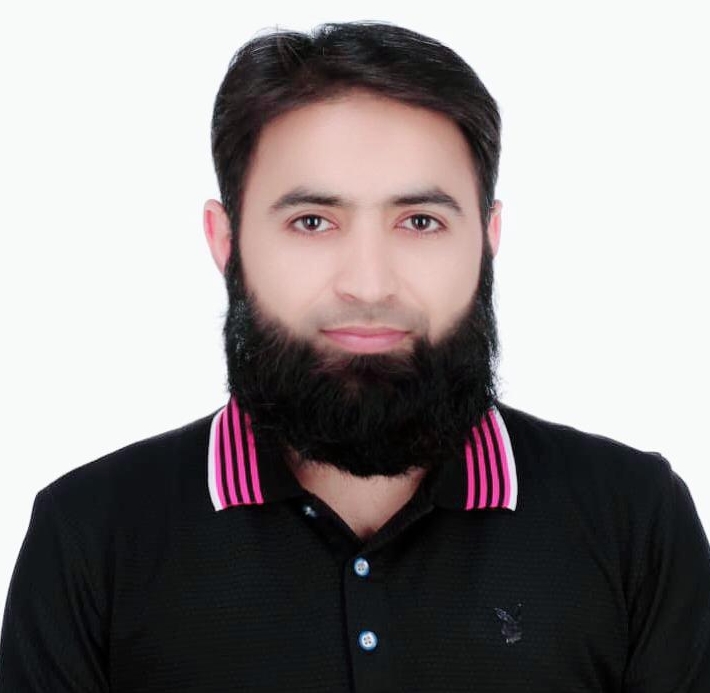
Dr. Majid Mumtaz
Assistant Professor
HEC Approved PhD Supervisor
Department of Computing
Shifa Tameer-e-Millat University, Islamabad, Pakistan
Google Scholar: https://scholar.google.com/citations?hl=en&user=6SfbFx4AAAAJ
ORCID:https://orcid.org/my-orcid?orcid=0000-0002-5043-5550
ResearchGate: https://www.researchgate.net/profile/Majid-Mumtaz-3
PERSONAL Website: https://mmumtaz.mcryptogeeks.com
BIOGRAPHY
Dr. Majid Mumtaz is an Assistant Professor at Shifa School of Computing, Shifa Tameer-e-Millat University (STMU) Islamabad. He is actively participating in different teaching and research activities and doing administrative task at graduate and undergraduate level. He had obtained PhD in Software Engineering from Tsinghua University (QS world ranked 14 & top Engineering University in all over Asia). He remained a very active member of information security and cyber security field specifically he is doing research in cyber security in general and specifically in Public Key Cryptanalysis, Cryptography and Information and Communication systems security. Overall, he has published multiple impact factor papers in journals of international repute with cumulative impact factor 12+. Besides journal he also has published more multiple papers in international reputed conferences. His research area includes but not limited to cyber security, information and communication systems security, IoT Security, Public key Cryptography, and public key cryptanalysis. He has also supervised/co-supervised many R&D projects of BSCS/BSSE/MCS graduates levels. He is reviewer of several prestigious journals and conferences. Besides teaching and research activities, he is also remained active in handling the administrative tasks in undergraduate and post-graduate level and completed them as well with success.
Majid has been served as lecturer at COMSATS University Islamabad (CUI), where he had taught different computing courses at undergraduate, and graduate level and he also has experience in research or creative work, thesis or project supervision, student’s guidance or counseling, administrative activities, and co/extra-curriculum activities at different levels at CUI. At University level, he has fulfilled several academic and administrative duties besides teaching and research activities including a member of various administrative committees (proposal/FYP project internal evaluation, scrutiny, Visio Spark, open house & job fair), FYP undergraduate (CS / SE), responsible/member of session management committee (national / international Conferences) and many other events. In International level at KTH Royal Institute of Technology have done Research and Development activities. At national level, worked in local IT industry as delivered in Systems Administration activities as a head of Domain and hosting department at COMSATS Internet service provider (CIS) from April 2008 to June 30th, 2010. He has an overall professional experience (teaching + research) of more than 15 years.
RESEARCH INTERESTS
- Public key cryptography, RSA Cryptanalysis, Algebraic Cryptanalysis.
- Smart IoT Security.
- Information and Communication Systems Security.
- Secure Mobile applications development.
- Source Code Cloning.
RESEARCH WORK [Total Impact Factor = 12+]
Journals Publications:
- Mumtaz, M., & Ping, L. (2019). Forty years of attacks on the RSA cryptosystem: A brief survey. Journal of Discrete Mathematical Sciences and Cryptography, 22(1), 9-29. [Impact factor 0.77]
- Mumtaz, M., & Ping, L. (2020). Remarks on the cryptanalysis of common prime RSA for IoT constrained low power devices. Information Sciences, 538, 54-68. [Impact Factor 6.795, Q1]
- Mumtaz, M., & Ping, L. (2021). An improved cryptanalysis of large RSA decryption exponent with constrained secret key. International Journal of Information and Computer Security, 14(2), 102-117. [Impact factor 0.84]
- Akram, J., Shi, Z., Mumtaz, M., & Luo, P. (2020). DroidSD: An Efficient Indexed Based Android Applications Similarity Detection Tool. Journal of Information Science & Engineering, 36(1). [Impact factor 0.64]
- Akram, J., Mumtaz, M., Jabeen, G., & Luo, P. (2021). DroidMD: an efficient and scalable
android malware detection approach at source code level. International Journal of Information and Computer Security, 15(2-3), 299-321. [Impact factor 0.84]
- Akram, J., Mumtaz, M., & Luo, P. (2020). IBFET: Index‐based features extraction technique for scalable code clone detection at file level granularity. Software: Practice and Experience, 50(1), 22-46. [Impact factor 2.028]
- Mumtaz M., Muftic S., N. bin Abdullah, Strong Authentication Protocol based on Java Crypto Chips, accepted to The Journal of Networks, Software Tools and Applications, Springer Cluster computing 2015.
Conference Publications:
- Mumtaz, M., & Ping, L. (2021, April). Cryptanalysis of a Special Case of RSA Large Decryption Exponent Using Lattice Basis Reduction Method. In 2021 IEEE 6th International Conference on Computer and Communication Systems (ICCCS) (pp. 714-720). IEEE.
- Mumtaz, M., Akram, J., & Ping, L. (2019, August). An RSA based authentication system for smart IoT environment. In 2019 IEEE 21st International Conference on High Performance Computing and Communications; IEEE 17th International Conference on Smart City; IEEE 5th International Conference on Data Science and Systems (HPCC/SmartCity/DSS) (pp. 758-765). IEEE.
- Akram, J., Shi, Z., Mumtaz, M., & Luo, P. (2018, July). Droidcc: A scalable clone detection approach for android applications to detect similarity at source code level. In 2018 IEEE 42nd Annual Computer Software and Applications Conference (COMPSAC) (Vol. 1, pp. 100-105). IEEE.
- Akram, J., Shi, Z., Mumtaz, M., & Luo, P. (2018, July). DCCD: An Efficient and Scalable Distributed Code Clone Detection Technique for Big Code. In SEKE (pp. 354-353).
- Robert Hoffman, Stewart Kowalski, Rohan Jain, Majid Mumtaz, Using Conversational Agents To Help Teach Information Security Risk Analysis, The First International Conference on SocialEco-Informatics, SOTICS2011 October 23-29, 2011 – Barcelona, Spain. (Best Paper Awarded)
